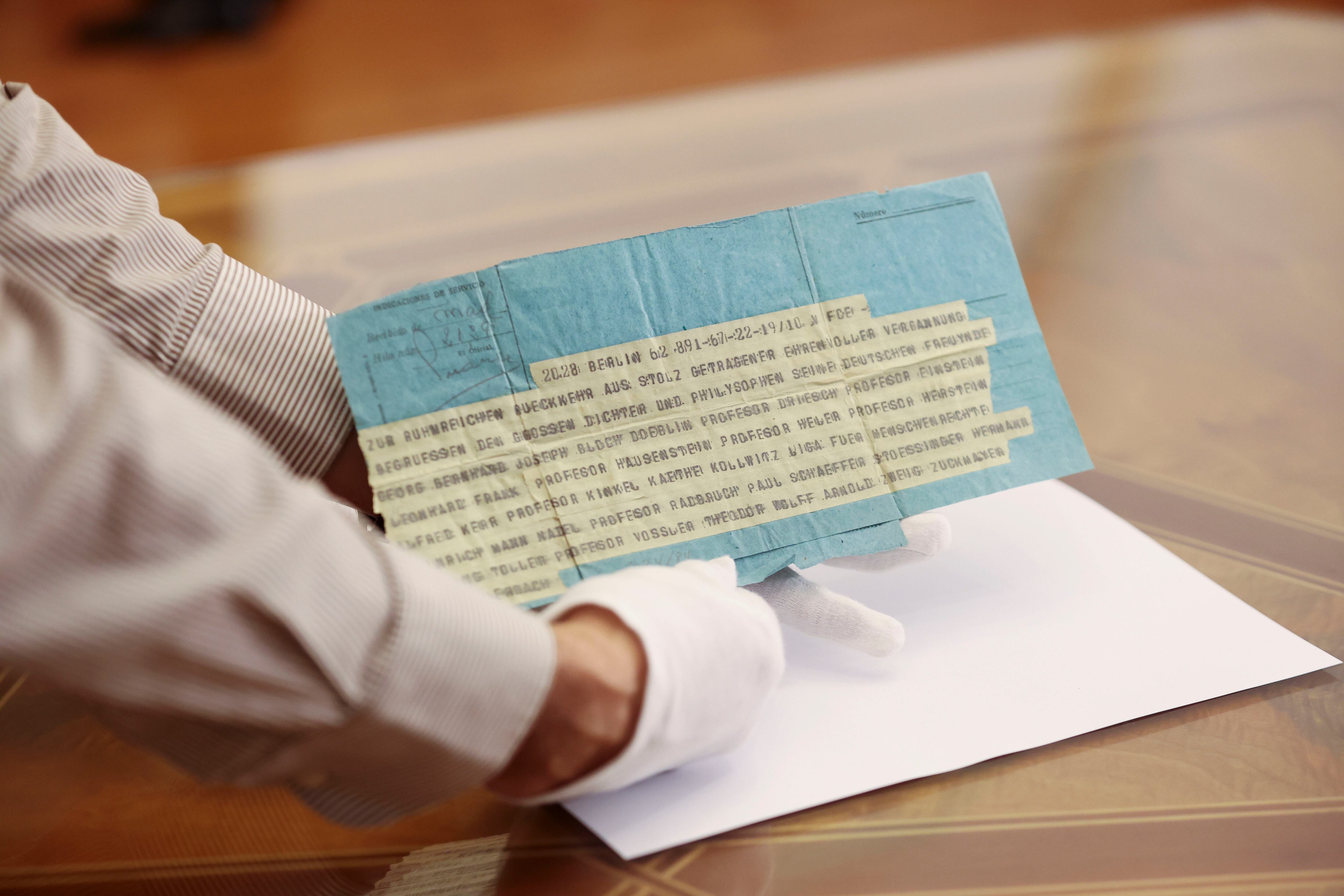Albert Einstein sent a telegram of support to Miguel de Unamuno as an expression of affection and reparation for the banishment and exile that the Basque thinker suffered in Fuerteventura, Paris and Hendaye between 1924 and 1930, a document found in the collection kept by the University of Salamanca . Einstein was already a person of world prestige, he had won the Nobel Prize in Physics in 1921, when he signed the correspondence, which is also signed by twenty personalities from Germany, written in the language of that country and presented this Monday at the House Museum of Unamuno, directed by Ana Chaguaceda.
The letter, dated around 1930, has been found among the abundant collection that articulates the legacy of Miguel de Unamuno (Bilbao 1864-Salamanca 1936), kept in the house museum managed by the University of Salamanca next to the historic building of the famous Studio Salmantino of which the thinker was professor and rector in various stages.
Ana Chaguaceda, at a press conference this Monday, explained that it appeared during the search carried out to prepare the celebration in 2026 of an exhibition that will disseminate the relationship between the philosopher and science, and coordinated by Marta García Gasco. The telegram, sent by “his German friends,” refers to Unamuno as a “brave fighter, great poet and philosopher” who has “endured exile with noble pride,” and they greet him “on the occasion of his glorious return from honorable exile.” ”. The discovery comes from an observation by the researcher García Gasco, from a note read in the book Einstein and the Spanish (1986), by Thomas F. Glick, and which led him to information from a special issue of The Literary Gazette, in 1930, where the telegram that was later found in the legacy kept by the University was collected.
Some of the most notable names who signed the document along with Einstein were Alfred Doeblin, author of the novel Berlin Alexanderplatz and prominent reference of German modernism, and Ernst Toller, one of the most prominent playwrights of his time.
Miguel de Unamuno was exiled by the regime of General Miguel Primo de Rivera, to whom the monarch Alfonso (1921). His ironic writings against Primo de Rivera, sometimes with insinuations about his private life, caused his exile to Fuerteventura for five months, which was followed by an exile in Paris for more than a year, in 1925, and a subsequent stay in Hendaye ( 1925-1930) before returning to Spain.

